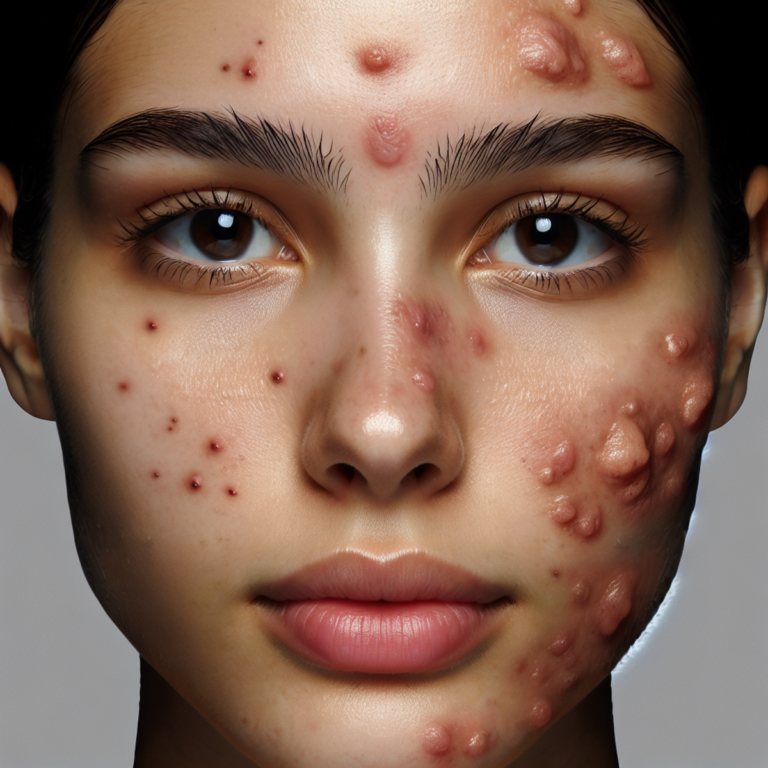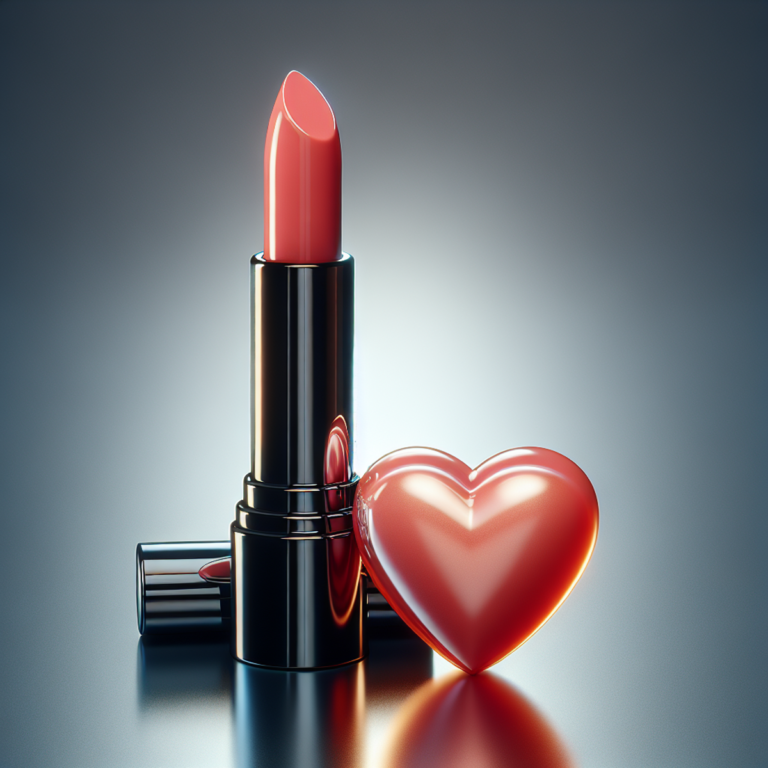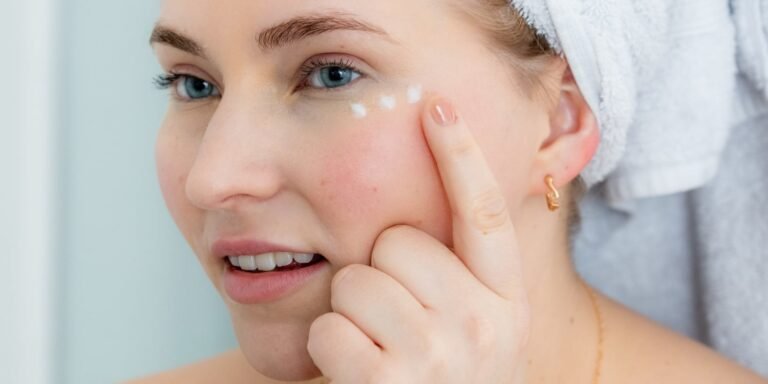Is Mineral Oil Really That Bad for Your Hair? We Asked Experts to Weigh In

Introduction
In the world of hair care products, mineral oil has been a topic of debate for quite some time. It is often criticized for its potential negative effects on hair health and the scalp. But is this controversy justified? To get a clearer understanding, it is important to seek expert opinions and explore the available evidence.
Mineral oil, derived from petroleum through a distillation process, is commonly used in various hair care products. It acts as a protective agent by forming a layer of hydrophobic oil around the hair shaft, preventing damage caused by water absorption. However, there are concerns surrounding its use that have sparked the ongoing debate.
Before jumping to conclusions, it is crucial to delve deeper into the subject and consider different perspectives. Seeking expert opinions can help shed light on the matter and provide valuable insights. By examining the scientific evidence and hearing from professionals in the field, we can make informed decisions about whether mineral oil deserves its controversial reputation in the realm of hair care.
What is Mineral Oil?
Mineral oil is a widely used ingredient in hair care products, known for its ability to provide a protective coating to the hair shaft. Derived as a byproduct of petroleum through a distillation process, mineral oil consists of hydrocarbons and possesses several key properties that make it suitable for various applications in the beauty industry.
Definition and Properties
- Definition: Mineral oil, also referred to as paraffin oil or liquid petrolatum, is a transparent, odorless, and colorless oil that is commonly utilized in skincare and hair care formulations.
- Properties: It is characterized by its non-comedogenic nature, which means it does not clog pores, making it suitable for use on the skin and scalp. Additionally, mineral oil is hydrophobic, forming a barrier on the hair shaft to prevent water absorption and subsequent damage.
Common Uses
- Skincare: Mineral oil is often included in moisturizers, cleansers, and ointments due to its emollient properties. It helps lock in moisture and maintain skin hydration.
- Hair Care: In hair care products, mineral oil serves as a conditioning agent, aiding in detangling and imparting a smooth texture to the hair strands. It also acts as a sealant to reduce moisture loss from the hair.
Derivation Process
Mineral oil is obtained from crude petroleum through a process of distillation. This involves heating the crude oil to separate its components based on their boiling points. The resulting mineral oil undergoes further refining to remove impurities and ensure its safety for cosmetic and skincare use.
Through this distillation process, mineral oil is obtained in varying grades of purity, with refined forms being commonly utilized in personal care products due to their high quality and safety profile.
The Controversy: Is Mineral Oil Safe for Your Hair?
When it comes to hair care, there has been a significant controversy surrounding the use of mineral oil. Critics argue that it can have a suffocating effect on the scalp and lead to product buildup. However, it’s important to examine the scientific evidence and consider expert opinions before forming a conclusion.
Arguments Against Mineral Oil in Hair Care
One of the main arguments against mineral oil in hair care is its alleged suffocating effect on the scalp. It is believed that the hydrophobic nature of mineral oil can create a barrier on the scalp, preventing moisture from entering or exiting the hair shaft. This has raised concerns about potential damage to the hair over time. While some studies have explored this aspect, more focused research is needed to draw definitive conclusions on its impact on hair health (source).
Concerns About Product Buildup
Additionally, some individuals worry that regular use of products containing mineral oil may lead to product buildup, making the hair appear dull and lifeless. However, it’s worth noting that properly formulated and balanced products can mitigate this issue.
Expert Support for Mineral Oil in Hair Care
On the other hand, there are experts who support the use of mineral oil in certain hair care products. They argue that when properly formulated and balanced with other ingredients, mineral oil can provide benefits such as reducing water loss and helping to keep the hair hydrated. In fact, many popular hair care brands include mineral oil in their formulations due to its ability to create a protective layer on the hair shaft.
Importance of Scientific Research
To better understand this controversy, it’s crucial to consider scientific research on the topic. Studies have shown that refined and purified forms of mineral oil used in cosmetics and skincare products are generally safe for use (source). However, there is limited research specifically focusing on its effects on hair health. Factors such as product quality and individual hair type also play a role in determining how mineral oil affects the hair.
Balancing Different Perspectives
In summary, while there are concerns regarding the suffocating effect of mineral oil on the scalp and potential product buildup, it is essential to consider expert opinions and scientific evidence before dismissing it entirely. The formulation and quality of products containing mineral oil, as well as individual factors, need to be taken into account when evaluating its safety and effectiveness.
Understanding the Potential Benefits and Drawbacks
When it comes to mineral oil, it’s important to understand the difference between refined and unrefined forms. Refined mineral oil is commonly used in skincare products and hair care because it goes through a purification process to remove impurities. But does this mean that refined mineral oil is safer or more effective than unrefined mineral oil? Let’s find out.
The Difference Between Refined and Unrefined Mineral Oil
The main distinction between refined and unrefined mineral oil lies in their purity levels. Refined mineral oil has been treated to eliminate any potential contaminants, making it a cleaner option for cosmetic purposes. On the other hand, unrefined mineral oil may contain some impurities that could be of concern to certain individuals.
The Safety and Efficacy Debate
When it comes to the safety and efficacy of mineral oil in skincare, there are differing opinions. Here are some key points from both sides of the debate:
Arguments in Favor of Refined Mineral Oil:
- Moisture Lock: Refined mineral oil has occlusive properties, which means it forms a barrier on the skin’s surface to prevent water loss. This can be beneficial for those with dry or dehydrated skin.
- Protective Shield: The occlusive nature of mineral oil can also help shield the skin from external irritants like pollution or harsh weather conditions.
Concerns about Refined Mineral Oil:
- Comedogenic Potential: Some studies suggest that refined mineral oil may have a higher likelihood of clogging pores compared to other oils. However, it’s important to note that comedogenicity can vary depending on factors such as an individual’s skin type and the specific formulation of the product.
- Acne Aggravation: Due to its occlusive nature, there are concerns that refined mineral oil could potentially worsen acne-prone skin by trapping sebum and bacteria. However, it’s worth noting that there are skincare ingredients for acne which can mitigate this issue.
The Importance of Proper Usage
While the debate on refined mineral oil continues, one thing remains clear: proper usage is key. Here are some guidelines to keep in mind when incorporating mineral oil into your skincare routine:
- Patch Test: Before using any new product containing mineral oil, it’s always recommended to perform a patch test on a small area of your skin. This can help you determine if you have any adverse reactions or sensitivities to the ingredient.
- Moderation is Key: Using an excessive amount of any skincare product, including those with mineral oil, can potentially lead to issues like clogged pores or product buildup. It’s best to follow the recommended usage instructions provided by the brand or consult with a dermatologist.
- Know Your Skin: Understanding your skin type and specific concerns can guide you in choosing the right products for your needs. While mineral oil may work well for some individuals, it may not be suitable for others.
Making Informed Choices
Ultimately, the decision to use skincare products with mineral oil or
Examining the Research: Does Mineral Oil Really Damage Hair?
When it comes to the question of whether mineral oil damages hair, it’s important to examine the existing research and consider various factors that can influence the outcome. Here’s an overview of studies and experiments that have been conducted to evaluate the long-term effects of mineral oil on hair health:
- Product quality matters: One crucial aspect to consider is the quality of the hair care product containing mineral oil. Not all products are created equal, and some may contain additional ingredients or have a different formulation that could impact their effectiveness. Therefore, it’s essential to choose high-quality products from reputable brands.
- Individual hair type: Another factor that can influence the impact of mineral oil on hair is individual hair type. Each person’s hair has unique characteristics, such as texture, thickness, and porosity. Some individuals may find that their hair responds well to products with mineral oil, while others may experience negative effects.
- Lack of benefits: While mineral oil is often touted as reducing water loss and helping to keep hair hydrated, studies have shown that it doesn’t offer significant benefits in this regard. In fact, some studies indicate that using mineral oil-based products may lead to a lack of moisture absorption by the hair shaft, potentially resulting in dryness and brittleness.
Despite some concerns about mineral oil, it is generally considered non-comedogenic when applied topically. However, thick layers of mineral oil on the skin can potentially contribute to acne formation.
Examining the research on whether mineral oil damages hair reveals a nuanced perspective. The quality of the product and individual hair type play significant roles in determining how mineral oil affects hair health. Furthermore, while there are claims about its moisturizing properties, studies suggest that mineral oil may not provide substantial benefits in terms of hydration. Considering these factors, such as hair porosity, can help individuals make informed decisions about incorporating mineral oil into their hair care routine.
Safer Alternatives to Mineral Oil in Hair Care
When looking for alternatives to mineral oil in hair care products, there are several natural oils that can serve similar functions without the potential concerns associated with mineral oil. Here are some popular alternatives and their benefits:
- Olive Oil: Olive oil is rich in vitamins and antioxidants, making it a great option for nourishing and moisturizing the hair. It helps to improve hair elasticity, reduce frizz, and add shine. Additionally, olive oil contains oleic acid, which can penetrate the hair shaft and provide deep hydration.
- Argan Oil: Argan oil is derived from the kernels of the Moroccan argan tree. It is known for its high content of fatty acids and vitamin E, which help to moisturize and protect the hair. Argan oil is lightweight and easily absorbed, making it suitable for all hair types. It can also help to tame frizz, smooth the hair cuticle, and promote overall hair health.
- Jojoba Oil: Jojoba oil closely resembles the natural sebum produced by our scalp, making it an excellent choice for balancing oil production and maintaining scalp health. It helps to moisturize the hair without leaving a greasy residue. Jojoba oil also contains vitamins B and E, as well as minerals like zinc and copper, which nourish and strengthen the hair follicles.
- Coconut Oil: Coconut oil is a versatile oil that can be used for various purposes in hair care. It has a high affinity for protein, which makes it beneficial for strengthening and repairing damaged hair. Coconut oil also has antimicrobial properties that can help prevent scalp infections and promote a healthier scalp environment. Additionally, it can penetrate the hair shaft to moisturize and reduce protein loss.
These alternative oils offer a range of benefits for your hair care routine, from hydration and nourishment to frizz control and scalp health. However, it’s important to note that individual hair types and preferences may vary, so it’s advisable to experiment and find the oil that works best for you.
While mineral oil may have its benefits in certain circumstances, opting for natural alternatives like those found in this WebMD article on natural oils can provide similar results without potential concerns. Incorporating these safer alternatives into your hair care routine can help you achieve healthier, more lustrous locks while avoiding the controversy surrounding mineral oil.
Remember, always consult with hair care experts or professionals to get personalized recommendations based on your specific needs and concerns.
Expert Insights on Mineral Oil and Hair Health
Interviewing a trichologist or hair care expert can provide valuable insights into the effects of mineral oil on hair health. By seeking their perspective on the effects of mineral oil on protein retention in the hair shaft, we can gain a deeper understanding of how this ingredient interacts with hair at a molecular level. Additionally, discussing whether the commonly raised issue of mineral oil clogging skin pores is supported by scientific research can help dispel myths and clarify the actual impact of mineral oil on skin health.
When interviewing hair care experts, it’s important to delve into their professional experiences and knowledge regarding the effects of mineral oil on protein loss in hair. Understanding their insights can shed light on the potential benefits or drawbacks of using products containing mineral oil, especially in relation to maintaining hair health and integrity.
Furthermore, addressing the concern about mineral oil’s non-comedogenic properties is crucial for providing accurate information to readers. By exploring whether scientific research supports the claim that mineral oil clogs skin pores, we can offer a well-rounded assessment of its impact on skin health.
Expert insights play a pivotal role in unraveling the complexities surrounding mineral oil and its effects on both hair and skin. By consulting professionals in the field, we aim to present a comprehensive view that encompasses scientific evidence, practical experiences, and nuanced perspectives from those deeply familiar with the intricacies of hair care and skincare.
Conclusion
When it comes to the controversial topic of mineral oil in hair care products, it’s important to approach the issue with an open mind and consider expert opinions. While some argue against its use due to concerns about suffocation of the scalp and product buildup, scientific evidence and expert insights tell a different story.
Mineral oil, derived from petroleum through a distillation process, is a protective agent that coats the hair shaft to prevent damage caused by water absorption. Refined and purified forms of mineral oil used in cosmetics and skincare products are considered safe for use.
However, it’s crucial to understand the potential benefits and drawbacks of using mineral oil in hair care. The difference between refined and unrefined mineral oil may not significantly impact its safety or efficacy. Proper formulation and balanced use are key factors to consider when incorporating mineral oil into your hair care routine.
Research on the long-term effects of mineral oil on hair health is inconclusive, with factors such as product quality and individual hair type playing a role in its impact. It’s worth exploring alternative oils like olive oil, argan oil, jojoba oil, or coconut oil that can serve similar functions without the concerns associated with mineral oil.
To gain further insights into the effects of mineral oil on protein retention in the hair shaft and its potential to clog skin pores, consulting a trichologist or hair care expert can provide valuable guidance.
In conclusion, it is essential for readers to make informed decisions about hair care products containing mineral oil. By conducting a balanced assessment of available evidence and seeking guidance from trusted experts, individuals can choose the best approach for their specific needs and preferences.
Remember that everyone’s hair is unique, and what works for one person may not work for another. Stay informed, experiment with different products, and listen to your hair’s needs to achieve healthy and beautiful locks.










